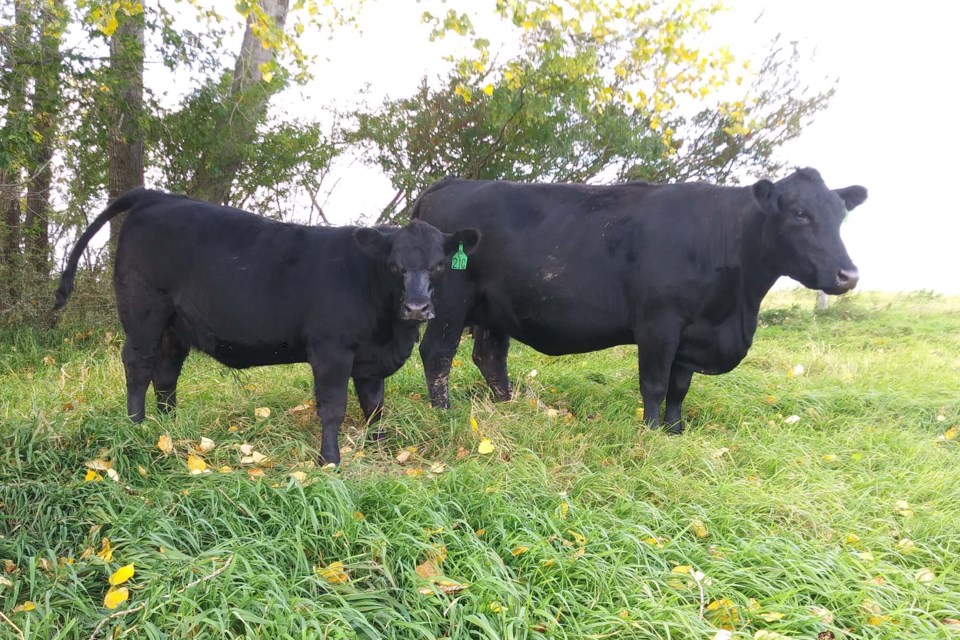Alberta farmers will dump millions of dollars worth of potatoes this year despite provincial aid as there’s no way to get them to market, say potato producers.
Alberta Premier Jason Kenney and Alberta Agriculture Minister Devin Dreeshen announced new supports for beef, pork and potato producers May 7 to address backlogs in the food processing industry related to the coronavirus pandemic.
Impaired operations at meat packing plants in Alberta related to the pandemic have caused a backup of about 400,000 cows on Alberta feedlots, creating a potential crisis, Kenney said.
The province and the federal government have started a $42-million set-aside initiative through the AgriRecovery disaster relief program that would pay farmers to hold onto their cows for nine weeks until packing plants can catch up. Kenney said this program would run until the backlog cleared, which he estimated would take 30 weeks. About $17 million of this cash comes from the province.
Kenney said the province has also increased interim payments under the federal/provincial AgriStability program to 75 per cent from 50 per cent for the potato and hog industries, both of which have also seen backlogs due to the pandemic. Pork producers in the program would get about $20 per pig, for $25 million total.
Kenney said the province is in talks with the federal government to tap into the $50-million surplus food purchase program announced May 5 and is developing supports for the beekeeping and racehorse industries as well.
Could help a bit, say locals
About 95 per cent of Alberta’s beef gets processed at just three plants, and many of them have stopped or slowed operations to deal with COVID-19 outbreaks, explained Colin Campbell, who raises cows near Bon Accord and is the Zone 7 director for Alberta Beef Producers.
“We’re backed up at least 50 to 150,000 head, and there’s still more cattle coming on.”
That’s sent cow and calf prices plummeting some 40 per cent since March, Campbell said. Those backlogged cows still have to be fed, and $3 to $4 of food per cow per day times 10,000 cows per feedlot times 30 to 40 days of delay equals one big loss – bigger if the cows die or get sick before they can be processed.
Campbell said this set-aside program would give the feedlot operators that prepare Sturgeon County’s cows for slaughter significant support. Still, he is concerned a second wave of COVID-19 this fall could mean more backlogs.
About 80 per cent of Alberta’s potato crop goes into processed foods such as french fries, and with restaurants closed due to the pandemic, demand for those has plummeted, explained Terence Hochstein, executive director of the Potato Growers of Alberta. Food banks and feedlots are taking as much as they can, but farmers don’t have the trucks or wash plants set up to get potatoes to these alternate markets. That’s left about 100,000 tonnes ($26 million) of potatoes without a home.
Producers are being told to plant about 20 per cent fewer potatoes this season to compensate, said Wayne Groot, who grows seed potatoes in Sturgeon County.
“Potatoes have a shelf life,” he said, and most growers don’t have refrigerated warehouses in this region as they can usually sell everything before the spring heat begins.
Groot said he’d have to dump about 300 tonnes or 10 per cent of his stored potatoes this year. Hochstein said some $5 million or 15,000 tonnes of seed potatoes would be lost province-wide.
Hochstein and Groot said AgriStability isn’t an option for most potato farmers, as it doesn’t cover inputs and equipment, which are the main expense on a potato farm. The buyback program might help, but you’d still need to clean and ship all those tubers.
Hochstein said governments might want to just compensate farmers for their dumped potatoes instead.



